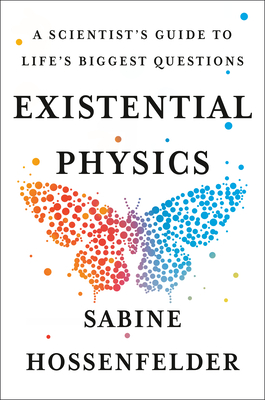
Existential Physics: A Scientist's Guide to Life's Biggest Questions
About the Author
Questions & Answers
The fundamental limitations of scientific inquiry stem from its reliance on empirical evidence and mathematical descriptions. These limitations affect our understanding of existence and the universe in several ways:
-
Empirical Evidence: Science can only confirm what can be observed and measured. This limits our understanding of phenomena that are not directly observable, like the nature of consciousness or the beginning of the universe.
-
Mathematical Descriptions: While mathematics is powerful, it is a tool for describing reality, not reality itself. This can lead to misunderstandings, as seen in the "mathematical universe" hypothesis, which posits that all of mathematics is real, regardless of its relevance to our observations.
-
Time and Space Constraints: Our observations are limited by the time and space we can access. This affects our understanding of the universe's past and future, as well as phenomena that occur over vast timescales or distances.
-
Quantum Uncertainty: Quantum mechanics introduces inherent uncertainty in measurements, making it impossible to predict outcomes with absolute certainty.
-
Unpredictability: Some systems, like weather and human behavior, are inherently unpredictable due to their complexity and the chaos theory principle of sensitive dependence on initial conditions.
These limitations lead to a nuanced understanding of existence and the universe, acknowledging that while science provides valuable insights, it also has boundaries beyond which we must turn to other means of understanding, such as philosophy, religion, and personal reflection.
The nature of time and the physical laws of the universe challenge our intuitive understanding in several ways. Special relativity, for instance, shows that time is relative and not universal, meaning different observers in relative motion perceive time differently. This challenges our notion of a single, universal "now." Moreover, the block universe concept posits that the past, present, and future all exist simultaneously, which contradicts our everyday experience of time flowing linearly.
Quantum mechanics introduces uncertainty and probabilistic outcomes, which conflicts with our classical understanding of determinism. The many-worlds interpretation suggests that every possible outcome of a quantum event occurs in a separate universe, challenging our understanding of existence and reality as singular and unique.
The second law of thermodynamics, which states that entropy tends to increase over time, seems to contradict the time-reversible nature of fundamental physical laws. This discrepancy challenges our intuitive understanding of cause and effect and the arrow of time.
Lastly, the possibility of being a brain in a vat or living in a simulation challenges our understanding of physical reality and the nature of existence itself. These challenges prompt us to reconsider our intuitive notions of time, reality, and existence in light of scientific discoveries.
Quantum mechanics and the standard model of particle physics have significant implications for our understanding of consciousness, free will, and reality. Quantum mechanics, with its probabilistic nature, suggests that the universe is not deterministic, which challenges the concept of free will. However, the randomness in quantum mechanics is not the same as human decision-making, and the connection between quantum randomness and human behavior is not clear.
The standard model of particle physics, which describes the fundamental particles and forces, does not directly address consciousness or free will. However, it does suggest that the universe is governed by mathematical laws, which could imply that reality is ultimately mathematical in nature. This has led some to propose that consciousness might be an emergent property of complex systems, like the human brain.
Regarding the nature of reality, quantum mechanics has shown that particles can exist in multiple states simultaneously, which challenges classical notions of reality. The standard model, while deterministic, does not provide a complete picture of reality, as it does not include gravity. This suggests that our understanding of reality is still incomplete, and there may be more to the universe than we currently know.
The multiverse, fine-tuning, and the anthropic principle influence our understanding of the universe by suggesting it's finely tuned for life and possibly purposeful. The multiverse posits that our universe is just one of many, each with different physical laws, potentially explaining the fine-tuning of constants for life. Fine-tuning argues that the constants of nature are unlikely to have the values they do, suggesting a purpose or designer. The anthropic principle, particularly the strong version, claims life's existence explains the constants' values. These ideas challenge traditional views, suggesting the universe's complexity and our existence might not be coincidental, but rather, purposeful or part of a larger, more complex system. However, they remain speculative and unproven, leaving room for various interpretations and beliefs about the universe's purpose.
Understanding the limits of predictability and the nature of reality has significant ethical and philosophical implications. Ethically, it challenges our assumptions about free will and personal responsibility. If human behavior is predictable, it raises questions about the role of individual choice and whether people should be held accountable for their actions. Philosophically, it questions the nature of reality, consciousness, and the existence of free will. It challenges reductionism, questioning whether the whole is simply the sum of its parts. It also raises questions about the nature of time, the existence of the multiverse, and the possibility of a simulation hypothesis. These questions challenge our understanding of ourselves and our place in the universe, prompting us to reconsider our values and beliefs.
